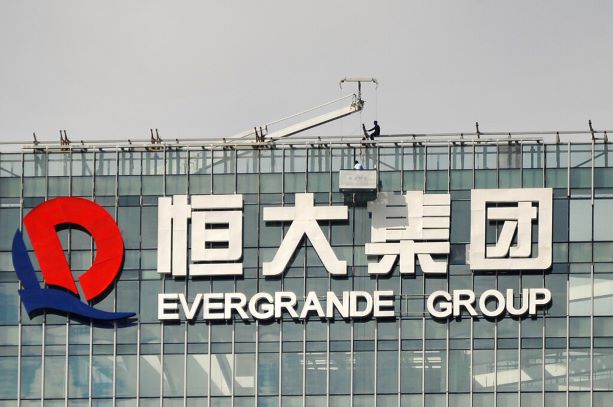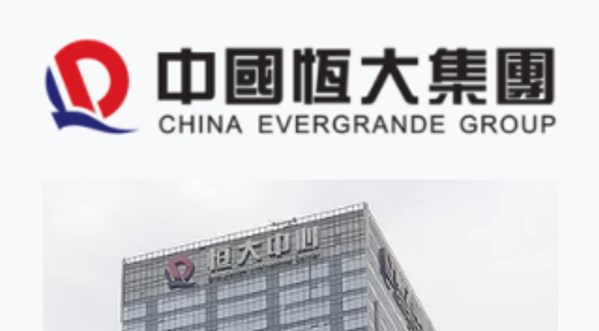
This is not the first time that I have written about these three investment blunders. Fortunately, they are becoming less common. But, until they disappear altogether, admonitions are still warranted.
The investment industry currently features two scandals: the lawsuits filed against the German financial-services conglomerate Allianz, for the collapse of its Structured Alpha suite of funds and the woes of Chinese property developer Evergrande Group.
The inclusion of Allianz’s funds makes sense, but you might wonder how the problems of a property developer qualify as an investment topic. Although Evergrande’s main business is real estate, it also offers “wealth management products” to customers who buy its apartments. Who better to manage your retirement savings than the people who built your house?
Unhappily, the answer is "pretty much anybody". Evergrande allegedly ran a Ponzi scheme, using incoming proceeds to pay off older accounts. In addition, stated one of the company’s executives, the firm used investor accounts to “bridge various funding gaps faced by the parent company.” Whatever the reasons, the money is gone, and Evergrande is now bartering with its customers. Rather than cash, the company says, it will provide those who wish to redeem their investments with IOUs for a future apartment. Such a deal!
Not that Allianz’s Structured Alpha shareholders can do much boasting. The funds, which invested heavily in options, got clocked by the highly volatile marketplace of February and March 2020. The tamer funds in the series dropped 30% during the period and never recovered. The more aggressive entrants lost almost everything. The Structured Alpha funds have since been shuttered.
Mistake 1: Aiming Too High
Everybody knows that if something is too good to be true, it probably is. Yet every year millions of investors override their better judgment and buy investments that can’t possibly deliver on their word.
The boldest of Allianz’s funds, Structured Alpha 1000, had a goal of outgaining cash by an annualised 10 percentage points while “generating returns in times of rising or falling equity markets and both low and high market volatility.” (Technically, it followed through on that claim: The fund did generate a return during March 2020. It was deeply negative.) Ten percentage points better than cash, through thick and thin! Don’t try that at home.
Evergrande’s investments were equally optimistic. According to the daughter of one of Evergrande’s investors, the product that her father bought guaranteed him an 11.5% annual gain. Some guarantee! Chinese bond yields are above Treasury levels, with Chinese government 10-year bonds currently paying 2.87%, but they are nowhere near high enough to support casually promising an 11.5% return.
When I encounter such offers, I back away slowly, with a tight grip on my wallet. Not just from that product, but from the company entirely. Organisations that want my money must earn my trust, from top to bottom.
Mistake 2: Accepting Complexity
This precept is not as ironclad as the first warning, because not every elaborate strategy fails. Several famous hedge funds, most notably Renaissance Technologies’ Medallion, have posted excellent long-term returns while using strategies that can’t easily be described. Just because a fund’s approach is complicated doesn’t mean it will prove to be a poor investment.
Nonetheless, the odds do not favour intricacy – particularly with publicly traded funds, which boast no equivalent of Medallion. Among funds and ETFs, the top 20-year performers (as measured by risk-adjusted returns) have adopted straightforward approaches. The exceptions have been a handful of bond funds that use derivatives, such as Pimco Total Return.
Accepting complexity usually means investing on faith. Few who bought either Evergrande’s products or the Structured Alpha funds knew what they held. Evergrande informed investors that it would use their money to provide financing to obscure privately held companies, while apparently doing otherwise. For their part, the Structured Alpha funds employed options tactics that have been appreciated only by subject-matter experts.
Mistake 3: Out of Date Information
It is crucial to receive timely news on portfolio holdings.
It’s one thing to invest in convoluted strategies that report their positions often, as with exchange-traded funds. Although few shareholders will directly use that information, as they won’t closely monitor their funds (and would be unlikely to know how to interpret the data if they did), the mere act of reporting creates a record that deters funds from straying too far off their stated paths.
It’s quite another thing when the snapshots occur infrequently. Depending upon their country of issuance, the Allianz funds reported their holdings quarterly or semiannually; that's sufficient for a typical mutual fund that turns over its portfolio gradually, but it is a hopelessly long period for funds that trade options. Such funds could begin the quarter investing in one fashion, change for two months, then resume their previous ways. No outsider would ever know.
The Evergrande products were even more opaque, being effectively blind pools. Their owners could only trust that their monies were invested as the sales literature described, into companies that were solvent and could pay their obligations. As it turned out, their trust was misplaced.
It Could Happen Anywhere
As these two examples come from Germany and China, it’s tempting to think that US and Canadian investors have outgrown such mistakes. To some extent, that is true. It is unlikely we will see an American equivalent of Evergrande. But US investors should not be too smug. Among the plaintiffs in the Structured Alpha lawsuits are Blue Cross Blue Shield, the City of Milwaukee, Lehigh University, and the Arkansas Teacher’s Pension.





























